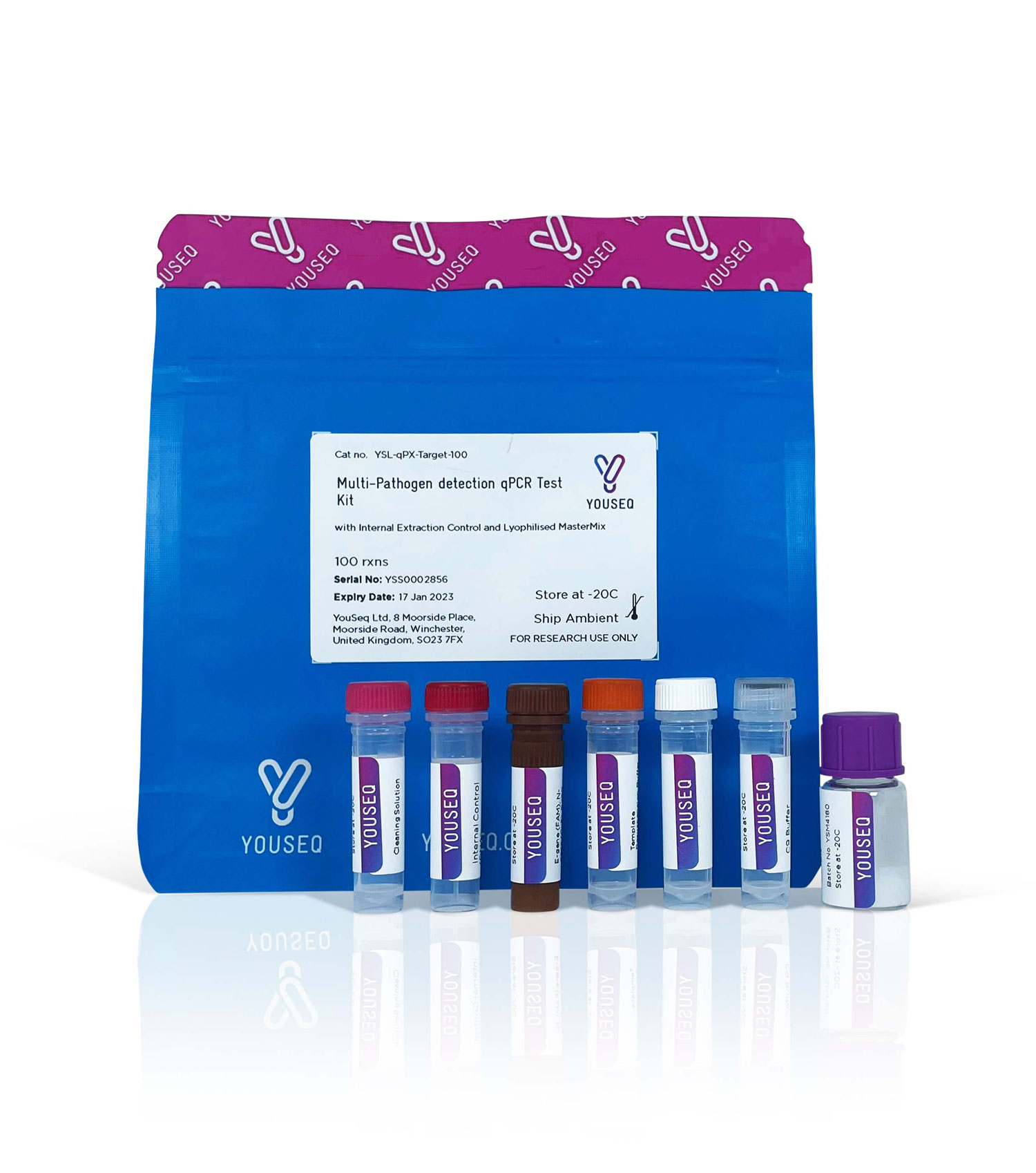Microsporum canis & Microsporum gypseum Multiplex
Cat no. YSL-qPX-IC-MC.MG-100

Microsporum canis & Microsporum gypseum Multiplex
Cat no. YSL-qPX-IC-MC.MG-100
A multiplex qPCR kit for the detection of Microsporum canis & Microsporum gypseum
Microsporum canis and Microsporum gypseum are common fungal pathogens that cause dermatophytosis, also known as ringworm, in humans and animals. Symptoms include red, scaly patches on the skin and hair loss. Early detection of these pathogens is crucial to prevent the spread of infection in veterinary, human healthcare, and environmental settings.
YouSeq's qPCR kit to detect Microsporum canis and Microsporum gypseum allows for rapid and accurate identification of these fungal pathogens, leading to timely treatment and prevention of further transmission. This targeted detection can help reduce healthcare costs, improve patient outcomes, and limit the environmental impact of these infections.

Price on enquiry
Order nowFor Research Use Only. Not intended for diagnostic use.
Contents
Internal extraction control primer/probe
qPCR MasterMix
Positive control template
DNase/RNase free water
Template resuspension buffer
Internal extraction control (DNA)
Technical specification
Efficiency: 90-110%
Sensitivity: <100 copy detection
Run Time: Approx 1hr30 (dependent on instrumentation)
Product variants
YS-qPX-IC-MC.MG-100 : Frozen version for dry ice shipping
Pseudonyms
Microsporum canis; Microsporum gypseum; ringworm; dermatophyte; fungal infection; tinea